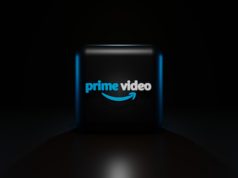 New legislation proposed today raises all kinds of demons and specters that have nothing to do with Halloween. The STOP Online Piracy Act, introduced Wednesday by leaders of the House Judiciary Committee and a companion to the Senate Judiciary Committee’s proposed Protect IP Act, instantly ignited heated arguments both for and against. The entertainment industry is broadly on one side, supporting the law’s provisions. Generally on the anti side is an array of groups that advocate on behalf of individual liberties, the technology industry and other interests. Not only is there no middle ground, there’s a vast turbulent ocean keeping the sides apart.
New legislation proposed today raises all kinds of demons and specters that have nothing to do with Halloween. The STOP Online Piracy Act, introduced Wednesday by leaders of the House Judiciary Committee and a companion to the Senate Judiciary Committee’s proposed Protect IP Act, instantly ignited heated arguments both for and against. The entertainment industry is broadly on one side, supporting the law’s provisions. Generally on the anti side is an array of groups that advocate on behalf of individual liberties, the technology industry and other interests. Not only is there no middle ground, there’s a vast turbulent ocean keeping the sides apart.
SOPA (HR 3261) is an attempt to tackle websites and addresses that violate U.S. copyright laws but have no physical presence in the country by making them invisible and strangling their income. It requires Internet service providers to block access to them; search engines to omit them from results; credit card and other financial services to disallow payments to them; and everyone from advertising on them.
What it doesn’t require is any kind of verification that the site is actually infringing. Therefore the bill also would provide immunity for such businesses who determine a site is “dedicated to the theft of U.S. property” and takes action “in the reasonable belief” that the site is violating U.S. laws, and it provides that site owners and operators can appeal to the court afterwards.
Purveyors of counterfeit luxury goods and shady pharmaceuticals are also affected, but few people are coming to the defense of “Rolox” watches and “genuine Viagra without a doctor’s visit.” Those against SOPA instead express concerns that the proposed law contains too many vague terms, it is technically unfeasible, and it presumes guilt.
SOPA was introduced by House Judiciary Committee chairman Lamar Smith (R-Texas), ranking member John Conyers (D-Mich.), IP Subcommittee chairman Bob Goodlatte (R-Va.) and Rep. Howard Berman (D-Calif.), along with eight others.
“Today marks an important step in furthering Congress’ constitutional prerogative to protect the rights of artists and innovators,” Conyers said. The Stop Online Piracy Act builds on the work of Members like Howard Berman who have championed these issues for years, and I look forward to working with all of the entities in the online ecosystem to effectively choke off the funding for rogue websites and eliminate their safe-havens as the bill becomes law. Millions of American jobs hang in the balance, and our efforts to protect America’s intellectual property are critical to our economy’s long-term success.”
The Electronic Frontier Foundation strongly disagrees. “Under this bill, service providers (including hosting services) would be under new pressure to monitor and police their users’ activities. Websites that simply don’t do enough to police infringement (and it is not at all clear what would qualify as ‘enough’) are now under threat, even though the DMCA expressly does not require affirmative policing,” wrote Corynne McSherry, Intellectual Property Director at EFF.
On a practical side, it’s unclear what constitutes a website and how all of the law’s cloak of invisibility would actually be applied. For example, could the authorities take down all of SoundCloud if someone uploads a song they don’t own the rights to? What happens to a small business owner whose site shares a host with an infringer? And will there be any restitution for businesses who are mistakenly taken down, like what happened recently when legitimate music blogs were blocked because they included MP3s that had been supplied by the record labels?
There are plenty of statements taking sides, listed below. Any organizations we’ve missed are welcome to send theirs along to be added.
Read the STOP Online Piracy Act here [PDF]
AGAINST:
Center for Democracy and Technology – House Copyright Bill Casts Dangerously Broad Net
Demand Progress – New Internet Blacklist Bill Could Shut Down Twitter and YouTube
Electronic Frontier Foundation – Disastrous IP Legislation Is Back – And It’s Worse than Ever
Public Knowledge – House Version of Rogue Websites Bill Adds DMCA Bypass, Penalties for DNS Workarounds
Fight for the Future – SOPA Act Breaks the Internet
Tech Freedom – Statement on Stop Online Piracy Act
FOR:
Committee on the Judiciary – Bipartisan Bill Combats Online Piracy
Recording Industry Assn. of America – House Introduces Bipartisan Legislation to Protect American IP Jobs
Motion Picture Assn. of America – Tech Execs Should Read the PROTECT IP Act Before Attacking It
U.S. Chamber of Commerce – U.S. Chamber Praises House Legislation to Protect Jobs and Sever Rogue Websites from the American Marketplace
Copyright Alliance – Copyright Alliance Cheers U.S. House Proposal to Curb Digital Theft of U.S. Intellectual Property
Independent Film & Television Alliance – Independent Film & Television Alliance Applauds New Intellectual Property Enforcement Bill
National Music Publishers Assn. – House Legislation on Rogue Sites Welcomed by Songwriting and Music Publishing Industry
American Assn. of Independent Music –
A2IM Applauds the U.S. House of Representatives Proposed Stop Online Piracy Act Legislation
American Federation of Musicians (AFM), American Federation of Television and Radio Artists (AFTRA), Directors Guild of America (DGA), International Alliance of Theatrical Stage Employees, Moving Picture Technicians, Artists and Allied Crafts of the United States, Its Territories and Canada (IATSE), International Brotherhood of Teamsters (IBT), and Screen Actors Guild (SAG) – Joint statement in support of SAOP
Photo by flickr user Kathleen Tyler Conklin, used under Creative Commons license








Chris –
Why are you buying into this complete bullsh*t smear campaign?
The EFF has lost its mind. There is nothing in this bill to justify such paranoia.
Theft is a crime. The bill reinforces that. It’s necessary to protect intellectual property that has cost many millions of dollars to create from being stolen.
I’m losing respect for the people who repeat this ridiculous canard that the bill ‘Hurts the internet’. That’s a crock of sh*t, plain and simple.
Signed,
a left-leaning libertarian who supports the bill
stars right. they act like they tried to kill the vcr.
oh wait.
Hi, and thanks for the comment. I didn’t think I was taking sides in this story, and neither did the people who emailed to tell me I was in the pocket of the entertainment industry. But since you sort of asked, I tend to agree with this op-ed written by Jon Healey at the LA Times – http://tinyurl.com/3rkwzo3
I also agree with what Sen. Ron Wyden (D-Ore.) said: “The collateral damage of this approach is speech, innovation and the very integrity of the Internet.”
There are a few things in particular that concern me. One is that YouTube etc. often act on flawed takedown notices. That’s not too much of a problem when it’s just a song down for a couple of hours. But this new law means a similar situation will cause an entire site will disappear. Even if we grant the benefit of the doubt that the authorities won’t take down YouTube, there are numerous legitimate music blogs and band websites that would materially suffer if they were disappeared. If you think that can’t happen, any indie artist who has had a hit single can tell you stories of major labels sending takedown notices for songs the labels don’t own. Here’s a rather well-known incident involving Edwyn Collins and his song “Girl Like You” –
http://www.myspace.com/wwwmyspacecomedwyncollins/blog/512410712
and http://www.nme.com/news/edwyn-collins/47840
Another concern is the unintentional consequences of DNS filtering, which weakens security, invites censorship, and has never worked when implemented. But it’s not a “ridiculous canard” that the proposed law could hurt the Internet. ” Here’s a research paper that explains what people mean by that, written by Steve Crocker of Shinkuro, David Dagon of Georgia Tech, Dan Kaminsky of DKH, Danny McPherson of Verisign and Paul Vixie of Internet Systems Consortium – [PDF] http://tinyurl.com/3blhwpz
You’re welcome to send a rebuttal, btw, which I will be happy to post without editing.
most likely. dont know how long it might last. you take down sites like youtube myspace etc people WILL notice.